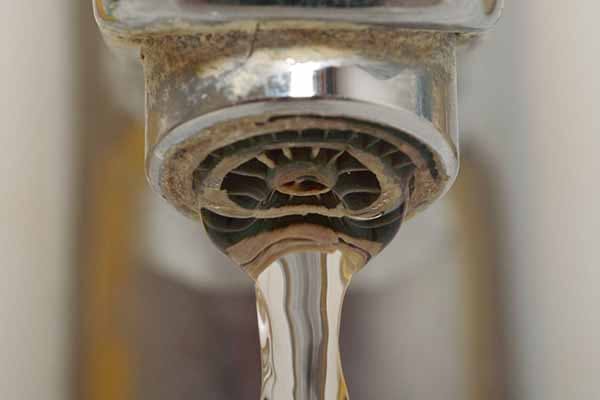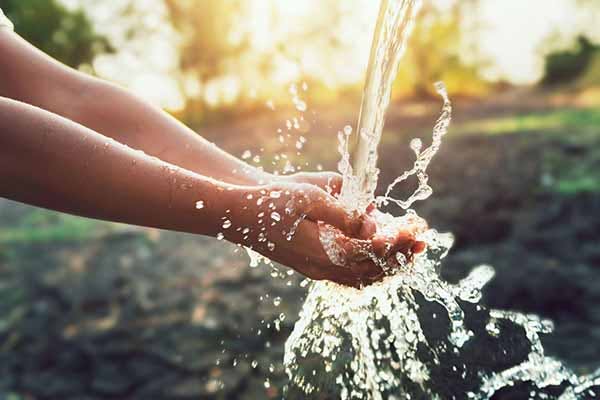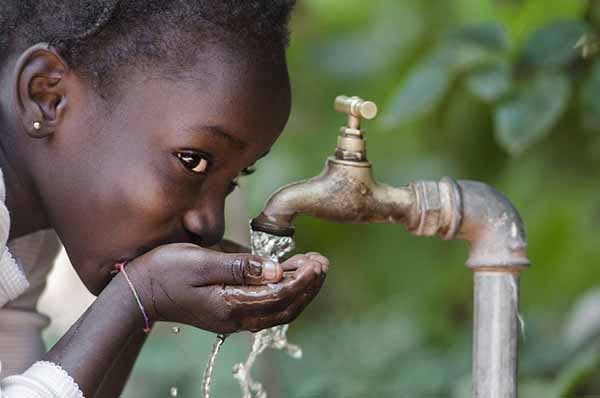May 2022
Hard Water vs. Soft Water: What's the Difference and Does It Matter?
Perhaps you've heard people touting the benefits of hard water vs. soft water, or vice versa. You may be curious about the differences between the two types of water, how to tell which you have in your home, and whether or not water hardness affects your water quality.
Perhaps you’re wondering if water hardness could present health problems. It might surprise you to learn that soft water can be unsafe for people with certain health conditions, which we'll discuss in a bit.
We'll also talk about the differences between hard and soft water, why water hardness matters, how it can affect your health or home, and what you can do about it.
Hard Water vs. Soft Water: What Is the Difference?
Hard water and soft water are different in the minerals they contain.
Hard water contains minerals and chemicals. Soft water doesn't have high calcium and magnesium levels, but usually has higher salt concentrations unless it's been softened with a potassium-based filtration system.
The hardness of water depends on its mineral content, specifically the amount of calcium and magnesium. However, other minerals and contaminants — such as manganese, iron, and zinc — may also be present. If your water has high concentrations of minerals, it will be harder. Conversely, moderately hard water has lower concentrations.
How Can I Tell If I Have Hard or Soft Water?
However, sometimes the way your water feels can help you tell the difference. Soft water tends to feel smoother. Also, it may feel a bit slippery. That's because the mineral deposits have been removed from your water. The feeling of soft water might be akin to the difference between a natural, lightweight silk fabric versus a synthetic polyester or rayon satin for hard water.
In addition, if you use too much soap or shampoo, soft water may react differently with your products, leaving a slimy feeling on your skin or perhaps leaving your hair a bit limp.
Another way to tell if your water supply is soft or hard is to look at your stemware, drinking glasses, shower doors, and water faucets. Hard water will leave a white residue or mineral deposits on all those surfaces, sometimes building up to a point where it's difficult to remove.
And, hard water may be a bit tougher on your hair and your skin, leaving both dry and susceptible to damage.
Sure Signs of Hard Water
The effects of hard water can be readily seen throughout your home and perhaps on your body. That's because of the mineral buildup that primarily consists of the calcium and magnesium present in your water supply, which causes limescale.
The following are some things to look for:
- White scale buildup on your sink faucets and showerhead
- A tell-tale soap scum film on your bathtub, shower, and sink
- Dingy whites coming out of the laundry
- White spots left on your silverware and drinking glasses when you pull them out of the dishwasher (a result of calcium carbonate)
- Stains that appear on your clothes and linens after being laundered at home
- Clothes wearing out faster because of the harshness of the hard water
- Lower water pressure, as mineral deposits can clog up your pipes and reduce water flow
Sure Signs of Soft Water
Here are some signs you have soft water:
- Thick lather or suds when you're washing your hands, body, hair, dishes, and clothes with soap
- Less wear and tear when you wash your clothes
- Cleaner clothes coming out of the wash with no mineral stains left behind
- Stronger water pressure
- A slight salty taste in your water — though this is usually not very noticeable
Why Is Hard Water a Problem?
Because hard water is full of dissolved minerals, it tends to be corrosive. As a result, it can damage your home's water pipes and plumbing, making them less effective because of limescale buildup.
Likewise, hard water can damage your appliances that use water, such as your washing machine, dishwasher, or water heaters. Thus, you may incur extra expenses to repair or replace them.
As mentioned above, hard water can do damage to your hair, skin, and your clothes.
Where Does Hard Water Come From?
As we mentioned, water is deemed "hard" if it has high concentrations of dissolved minerals such as magnesium and calcium. Other minerals may be present, as well, including brass, copper, manganese, or iron. These substances are gathered up by groundwater as it passes through soil and rocks, dissolving tiny bits of minerals and mixing them in with the flow. Eventually, that mineral-rich water flow ends up in our pipelines and ultimately into our home's water lines.
We can measure water hardness by testing it for grains per gallon (GPG) of water or total dissolved solids (TDS) by measuring parts per million (PPM). Home testing kits are readily available, or you can have your water tested by a professional.
Water is considered hard if the TDS measures between 320 and 420 PPM.
Depending on the pH and alkalinity of your water, your water hardness level could result in scale buildup, particularly when the water is heated up, thus becoming a wear-and-tear issue for appliances like your dishwasher or water heater.
How Do You Fix Hard Water?
You can fix hard water by installing a water softener system[1] — either a standard water softener that uses salt or a potassium-based water softening system. Another option is to install a water filtration system that filters out chemicals and harmful toxins but also minerals in order to soften your water.
Standard water softeners are cation exchange capacity (CEC) devices. As the hard water passes through the water softener system, the calcium and magnesium (cations) are substituted with sodium ions. (This is known as ion exchange). This process can also be accomplished with a potassium ion exchange, which can be healthier for those concerned about sodium levels in their diet.
During the exchange process, "free" sodium ions are released into the water. This is sometimes also called a base exchange.
A water filter can be placed at the point of use, directly under your sink, or you can choose to install a whole-house water filtration system.
Whole Home Softeners by Home Water provide much of the same benefits of a good water softening system without sodium. For example, the HomeWater Salt-Free Softener will condition your entire home's water supply, exchanging the calcium and magnesium, thereby preventing mineral buildup.
Is It Dangerous If My Drinking Water Is Hard?
Drinking tap water from a hard water supply should not present any serious health issues for most people. Moderately hard water may even provide some essential minerals.
However, some studies show that at-risk people who are prone to kidney stones should avoid hard water. This is because hard water appears to cause a significant increase (50%) in the urinary calcium concentration compared with soft water.

Let’s dive deeper.
Your Home's Water Heater Will Be Less Effective
Mineral-rich hard water increases water's boiling point, thus creating longer heat times. Likewise, limescale in your water heater, boiler, and pipes can decrease their efficacy.
The longer it takes to heat your water — or get hot water to where you need it — the more energy your home must use. As a result, you not only end up increasing your carbon footprint, but you also end up with pricier power bills. In fact, your gas or electricity bills could increase by around 28% just because your water heater has to work so hard.
Your Clothes May Sustain Damage
Those pesky minerals that create water hardness interact with the ingredients in your laundry detergents and prevent your soap from doing an adequate job of cleaning your clothes.
Higher-end laundry detergents include unique ingredients that help soften the water so that the cleaning portion of the formula can do its work. However, you may need to use more detergent than you would if your water was soft.
Some of the more problematic issues you may encounter when doing laundry with hard water include:
- Dingy whites that look drab, old, or dirty
- Light gray or white streaks on your colors — dark fabrics tend to suffer the most
- Colors fading in your brights or darks
- Weakened fibers that lead to easy tears, pilling, and holes in your clothing
- Scratchy or stiff clothing
Your Skin and Hair May Suffer
Even though hard water is not usually harmful to your overall health, it can have an impact on your hair and your skin.
Hair Hazards
The mineral content in your water may make it harder to thoroughly rinse products like shampoo and conditioner from your hair, which results in product buildup as it leaves behind a residue.
Hard water can be pretty tough on color-treated hair, causing your color to fade more quickly. That, in turn, leads to more frequent trips to the salon to freshen your hair color, leading to further damage to the hair follicles.

Hard water may also lead to a straw-like feeling in your hair after you rinse.
Finally, hard water may cause hair thinning and breakage. That's because the residual elements left behind by hard water produce a film on your hair that makes it hard for moisture to penetrate the strands, thus causing your hair to be dry and brittle.
Skin Sensitivities
The most significant impact of hard water on skin is dryness. As with your hair, hard water makes it tough to rinse away all of the soap or shower gel on the surface of your skin, potentially irritating it. Plus, the residual minerals on your skin sap the natural moisture and oils that your skin normally produces.
In addition, dry skin disrupts the PH balance of your skin, which may cause your skin to be more vulnerable to free radicals and harmful microbes.
Those who suffer from skin conditions, such as psoriasis or eczema, may have difficulty with hard water, as the minerals in the water can exacerbate the situation.

Is It OK to Drink Softened Water?
Drinking water that has been softened is perfectly safe, provided that you don't have high blood pressure, other health issues that make you more sensitive to salt, or a diet lacking in necessary minerals.
That said, it’s simple to get plenty of calcium and magnesium in your daily diet. Calcium-rich foods include dairy products, green leafy vegetables, and fish. Magnesium-rich foods range from nuts, seeds, legumes, animal proteins, and some fruits and vegetables.
If softening your water is essential to you for any reason, using a potassium-based filtration system is probably your safest bet, as it doesn't come with the added salt.
Hard Water vs. Soft Water: Perhaps Not as Important as Clean Filtered Water
There isn't much difference between hard water and soft water when it comes to your health. It's the damage that hard water can do to your home's plumbing and appliances, among other things, that cause issues.
Still, many people are not only concerned about hard water damage, but they're also worried about some of the health issues that can come from unfiltered water. Fortunately, you can take care of both issues with one solution.
Your best move is to install a water filtration system, such as those available from HomeWater, as they are designed to soften your water while filtering it for pathogens, chemicals, and other destructive elements.
Brought to you by homewater.com
All images licensed from Adobe Stock.
Featured Image